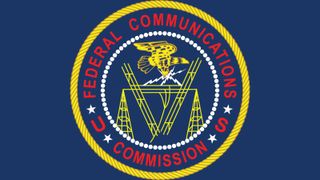FCC 24 GHz Auction Tops $600M

A little over four business days in, the bid total in the FCC's latest 5G spectrum auction continues to build, topping $600 million.
The total after a dozen rounds was $604,948,455, with New York drawing the highest bid so far at $13,098,000, followed by L.A. at $10,076,000, which together cover a population of about 40 million. There are 2,909 licenses in the 24 GHz high-band (millimeter wave) band up for grabs.
The auction opened March 14 and is being held in two phases. Initial bidding (clock phase) is on generic spectrum, with a follow-on auction (assignment phase) among the winners for specific frequencies.
Related: FCC Launches Latest 5G Auction
The clock auction means the FCC continues to raise prices automatically after each round until there are not bidders left, high bidder at that point wins.
Bidding is currently in three, one-hour rounds, but the FCC could boost the number of rounds or shorten their duration if and when it wants to goose the bidding.
The initial license periods are not to exceed 10 years. There are also build-out requirements—so the spectrum can't be warehoused but must be used as advertised. Bidding credits were available for rural service, small businesses and tribal lands, capped at $25 million.
Broadcasting & Cable Newsletter
The smarter way to stay on top of broadcasting and cable industry. Sign up below
The FCC earlier this year completed auction 101 (28 GHz spectrum), the first millimeter-wave auction, which brought in $702,572,410 for 2,965 licenses. The 24 GHz auction comprises 2,909 licenses divided up by partial economic areas.
Both auctions are intended to free up more spectrum for next generation (5G) broadband, part of the FCC's Spectrum Frontiers proceeding.
The FCC last month identified 38 qualified bidders for the spectrum, including AT&T, Verizon and T-Mobile. But a couple of familiar names were missing: Cox and Frontier, who had initially applied but did not make the final cut.
Related: FCC: Cox, Frontier Not Qualified to Bid on 24 GHz Spectrum
Neither can talk about why due to FCC auction rules about sharing information about an ongoing auction process.
FCC chair Ajit Pai has said that while the auctions may not be 'flashy,' they are "a vital step toward promoting U.S. innovation in 5G wireless services, the Internet of Things, and many technological “firsts” in these previously-underused, high-band frequencies."
But there was some flash associated with the launch of the 24 GHz auction, those were the muzzle flashes of fire aimed at the auction.
Some legislators asked the FCC to delay the auction due to concerns expressed by NASA and others about interference with adjacent frequencies used for gathering weather data.
“Today’s 24 GHz auction is an important step towards securing American leadership in 5G," FCC spokesman Brian Hart said March 14. "The FCC’s rules for this band went through the standard interagency coordination process, provide the necessary protection for other spectrum bands, and have been on the books since 2017.
Contributing editor John Eggerton has been an editor and/or writer on media regulation, legislation and policy for over four decades, including covering the FCC, FTC, Congress, the major media trade associations, and the federal courts. In addition to Multichannel News and Broadcasting + Cable, his work has appeared in Radio World, TV Technology, TV Fax, This Week in Consumer Electronics, Variety and the Encyclopedia Britannica.

